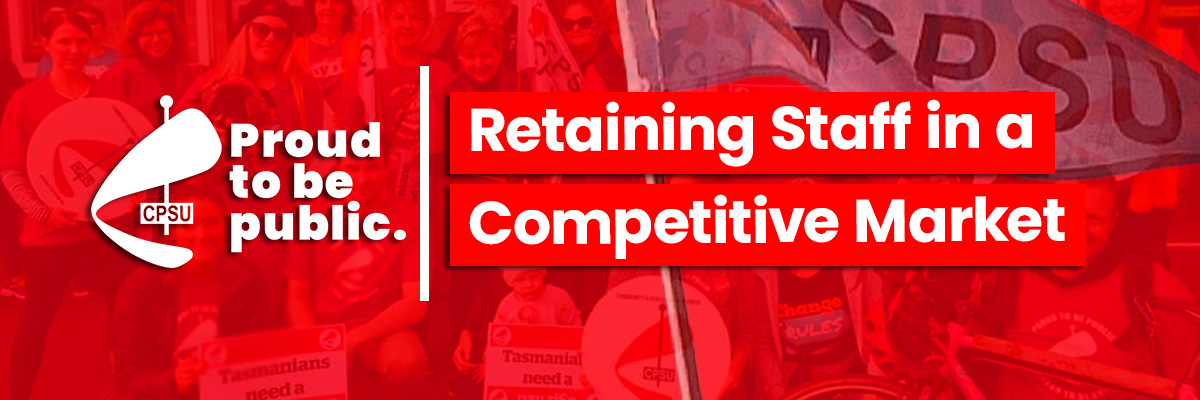
Across the State Service we are hearing about high levels of job vacancies, with vacancies often coming faster than recruitment can occur. The reasons people leave existing roles are many and varied but more and more we are hearing members say they moved because they didn’t feel supported in their current workplace.
While there are plenty of reasons why people leave a workplace here’s a few common ones:
- High level of vacancies
- Unmanageable workloads
- Little access to training or development opportunities
- Limited career paths
- Jobs being under-classified
- Lack of genuine consultation on change
- Poor communication
- A focus from mangers about managing up rather than supporting their staff
We recently saw an email that had been sent out to members in the Parks and Wildlife Service (PSW) from its Operations Group Leadership. The email reported on a discussion on the recruitment challenges facing PWS and how they could ensure ‘we are balancing operational needs with individual opportunities for career development’. It seems staff in PWS are applying for jobs elsewhere and this is leading to a ‘lot of shuffling of the deck chairs’ and the Group Leadership want to do something about it.
So what solutions did they identify to reduce turnover? Did they decide to review classifications, so the salary paid in PWS better aligns with other Agencies doing work of similar complexity? Did they discuss the opportunities to use broadbanding to reward long term employees who develop higher level skills? Did they talk about better ways to work so staff are not on call so much and can spend more time with their families?
No – this wasn’t the approach decided on. They decided to make it harder for employees to leave.
They won’t be filling short, internal roles through expression of interest processes – all vacancies will be externally advertised or filled through Whole-of-Government EOIs thereby filling roles with people outside PWS.
Where staff apply for a fixed term role either within NRET or outside NRET and they are successful, they will have to apply for permission to take the role. PWS will then decide if it will support the transfer or not. If they support the transfer, it may be on the basis the employee relinquishes their permanent position, meaning a permanent field officer on Maria Island who applies to fill a short-term vacancy for a ranger on the island may find themselves moved into a field officer position elsewhere in the state at the end of their fixed term. If PWS doesn’t support the transfer, then the employee would need to resign their permanent position in order to take a fixed term role.
This is a departure from the normal custom across the State Service of supporting staff seeking opportunities through fixed term roles. Not only will it not fix the problems at PWS, it may well worsen them. The CPSU believes PWS doesn’t have the power to refuse to release an employee who has been selected on merit for a fixed term opportunities within NRET – so any member who finds themselves in this situation should contact CPSUDirect at cpsudirect@tas.cpsu.com.au or on (03) 6234 1708.
People stay with good employers through the thick and the thin – being a better employer is the solution to PWS’ employment problems.

Tom Lynch
Assistant Secretary
Community & Public Sector Union – Tasmania
>> Keep Reading: CPSU Assistant Secretary Tom Lynch on NRE Tasmania’s failure to address shocking vacancies across the agency: https://www.cpsu.com.au/we-have-grave-concerns-shocking-levels-of-job-vacancies-across-nre-tasmania/
>> Did You Know? Last year a major workforce survey by Ceridian found more than 1 in 3 Australian workers finds a career change appealing. But more than half of these could be convinced to stay on in their job if they were given greater mobility within their own company or organisation








